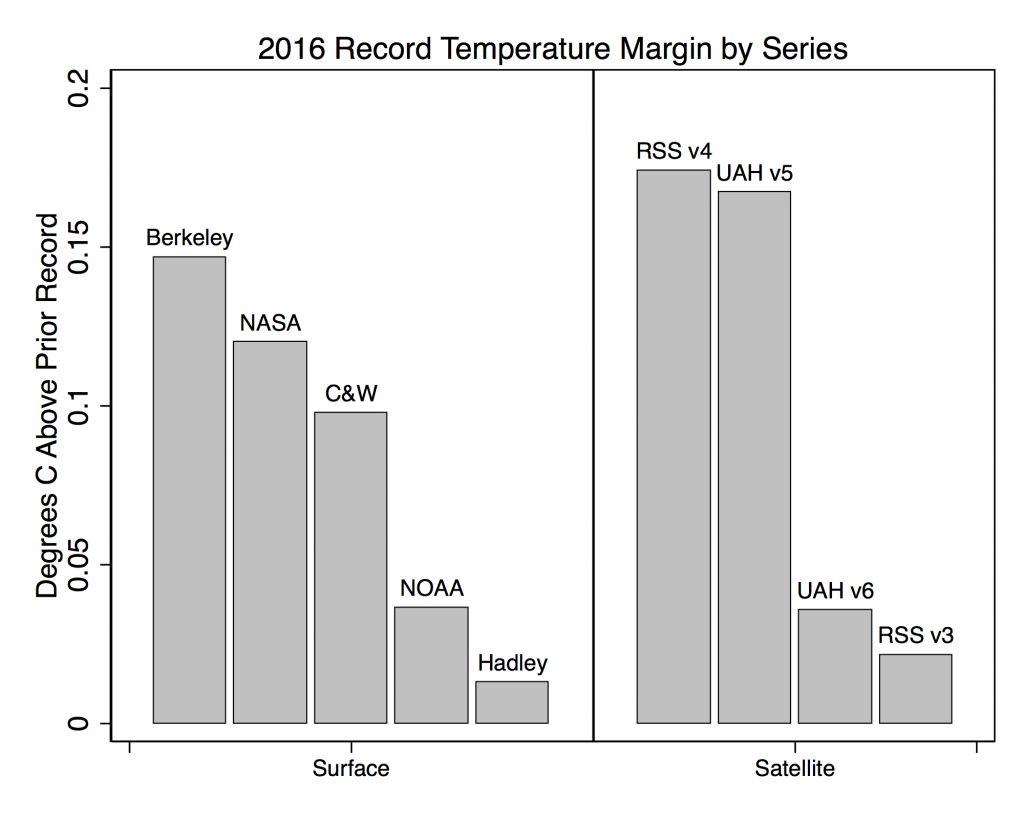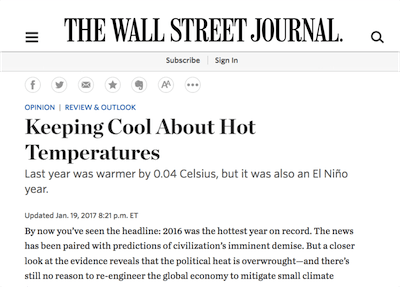
Lack of context : Fails to mention that 2016 is a record warm year globally, not just by comparison to 2015, but also by comparison to all the other years since record keeping began.

BEHAUPTUNG: 2016 edged out 2015 by a mere 0.04 degrees Celsius. That’s a fraction of the margin of error. Atmospheric data from satellites detected similarly small warming over previous years. In other words, no one really knows if last year was a record.
Zeke Hausfather, Research Scientist, Berkeley Earth:
This is selectively reporting only part of the story. While it is true that Hadley, NOAA, UAH(v6 beta), and RSS(v3) only showed a small warming over the previous record (2015 in the surface records, 1998 in the satellite records), the margin in the NASA, Berkeley Earth, Cowtan and Way, UAH(v5.6), and RSS(v4) was highly significant and clear, as shown in the figure below:

In five of the nine datasets we can clearly say it’s a record. In the other four it’s still more likely than not the warmest year on record.
Christopher Merchant, Professor, University of Reading and UK National Centre for Earth Observation:
It is correct to state that the amount by which the recorded global temperature of 2016 exceeds that of 2015 (0.04 °C) is within the margin of error (0.15 °C) that NOAA quote (table in [1]). One can correctly state that “no one really knows” in that sense. An alternative statement of the same facts is that there is a better-than-even chance that 2016 was warmer than 2015. Note that while 2016 exceeds 2015 by an amount that is statistically small, years previous to 2015 were significantly cooler. For example, the year of the warm temperature “spike” in 1998 [2] discussed later in the article was recorded as 0.27 °C cooler than 2015, which illustrates the trend to warmer temperatures underlying the year-to-year fluctuations.
- [1] NOAA National Centers for Environmental Information, State of the Climate: Global Analysis for Annual 2016, http://www.ncdc.noaa.gov/sotc/global/201613
- [2] NOAA National Centers for Environmental information, Climate at a Glance: Global Time Series, http://www.ncdc.noaa.gov/cag/


